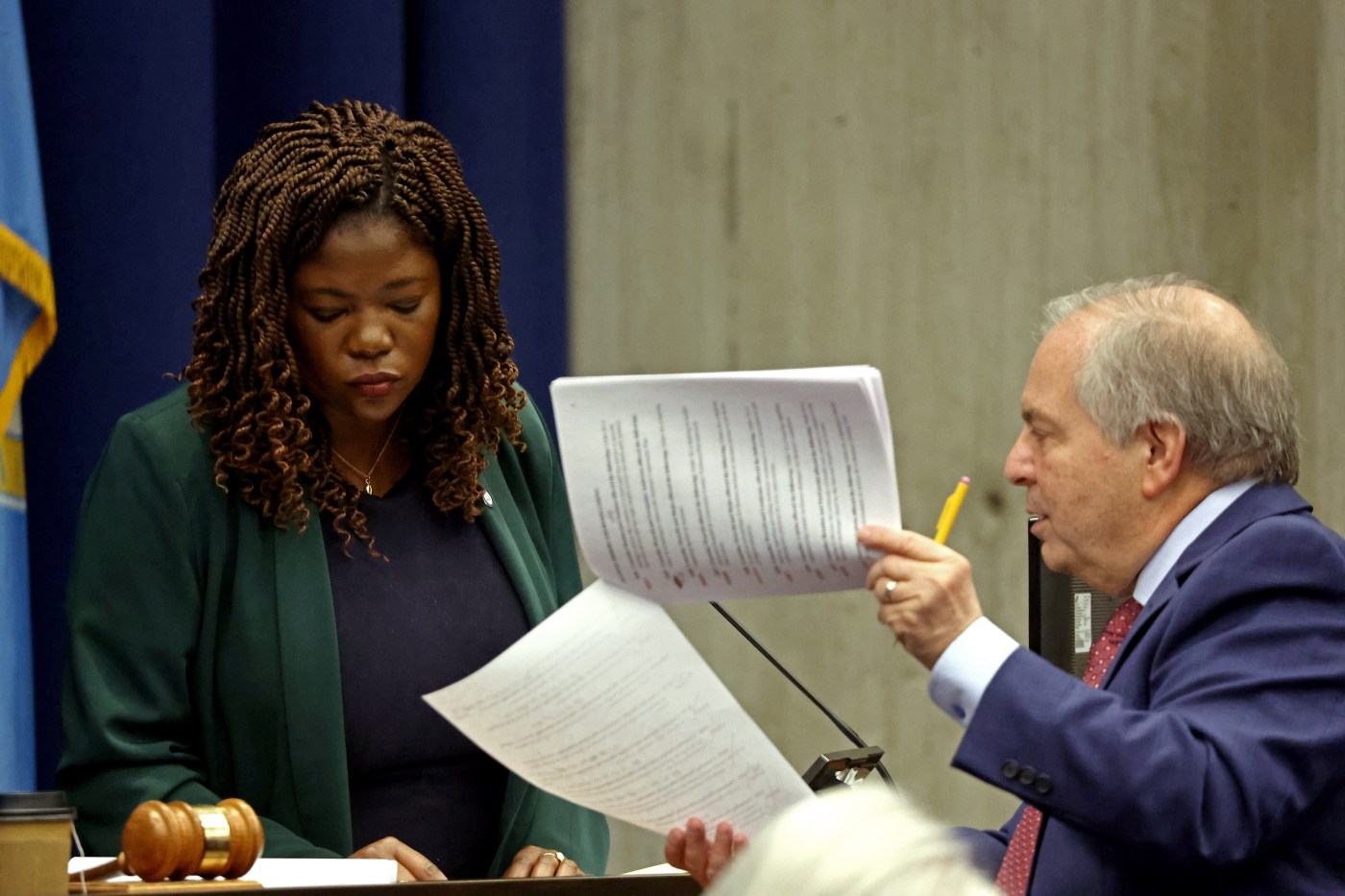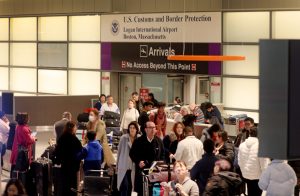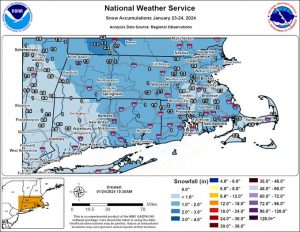
Boston City Council blocks action on $13M anti-terror grant … again
The Boston City Council blocked action on a $13 million counter-terrorism grant for the region again, prompting one councilor to question whether a further delay in accepting the federal funds would begin to impact police department operations.
The body appeared poised for a “yes” vote on the grant Wednesday, when Council Vice President Brian Worrell, who voted against it last term, made a motion to bypass a committee hearing and immediately pass the funding, and previously dissenting Councilor Liz Breadon said she would be voting in favor this time.
“This docket is a holdover from our previous term where several of our councilor colleagues had some lingering questions, which have now, I believe, been answered,” Worrell said. “I’ve also been in communication with BPD and have been informed that, as of now, the delay has not caused any operational issues within the department.”
Worrell did not elaborate on a potential timeline for when operational issues could present themselves, should the Council continue to delay acceptance of the U.S. Department of Homeland Security grant — which funds annual counter-terrorism operations for Boston and eight other cities in the metropolitan region.
He did quickly conclude his remarks, however, by calling for “suspension and passage” of the mayor’s refiled grant in his capacity as vice chair of the Public Safety and Criminal Justice Committee.
While his motion drew vocal support from both Councilors Breadon and Sharon Durkan, it was effectively killed by two other councilors, Julia Mejia and Erin Murphy, who opted to send the grant to a committee hearing.
Mejia made the formal motion, citing the four new councilors who weren’t involved in last month’s hearing process and 6-6 vote, which blocked the funding, and the need for further transparency around the body’s “first big vote” this term.
“In the spirit of transparency, I think it’s important for us to really recognize that we have an entire new Council and I think that this amount, given the significant amount that it is, requires us to be as fiscally responsible as possible,” Mejia said.
Related Articles
Sticker shock: Boston homeowners seeing higher property taxes in 2024
Boston Mayor Wu punts rejected anti-terror grant back to City Council
Boston Mayor Wu to campaign for Biden in New Hampshire on heels of Trump victory in Iowa
Boston Mayor Wu supports federal delegation’s ‘positions and actions’ in Israel-Hamas War
Leaders warn of ‘attacks’ on democracy, values at Boston’s 54th Annual Martin Luther King Jr. Memorial Breakfast
Mejia said another hearing would allow the Council to “unpack the questions that still may linger, so that way when we’re making a vote, we’re making an informed vote understanding all of the things that are at play.”
Murphy seconded Mejia’s motion for a hearing, which, per Council rules, automatically referred the matter to committee. Murphy had challenged Worrell’s assertion, not necessarily that the outstanding questions had been answered, but rather that not all councilors, including herself, had been privy to those answers.
“I think it’s important to know before we take a vote,” Murphy said.
Murphy said, however, that her ‘yes’ vote from last term would stay the same. Mejia was among the six councilors who voted against the grant.
Also voting against the grant last term was Breadon, who stated Wednesday that she now planned to vote in favor of the funding, after receiving clarity on a discrepancy between the past committee chair’s report and a description of how the grant would be used, as part of the docket considered by the body last month.
“The report included natural disasters as a focus of this grant, and I think the docket does not mention natural disasters, so I think we’re dealing with the original language of the docket going forward,” Breadon said. “I’m going to vote in support of this with clarification of this point.”
Council President Ruthzee Louijeune submitted a number of questions in writing ahead of her ‘no’ vote last month, and while she didn’t speak on the matter again this time, Worrell’s remarks seemed to indicate that those “lingering questions” to the mayor’s Office of Emergency Management and police had been answered.
While Worrell did not expand on his conversation with police, Durkan speculated that a further delay on accepting the federal funds could create an operational issue for the Boston Police Department. That issue could present itself “if it were funded at a further meeting,” rather than the one held this week, she said.
“I supported this before,” Durkan said. “This has been a non-controversial grant for the region.”
The Council voted unanimously for the same grant at roughly the same amount in January 2023. According to a correspondence from U.S. Rep. Jake Auchincloss, who urged councilors to pass the grant he helped to secure, it has also been passed unanimously in prior years.
The grant represents the annual funding source for the Metro Boston Homeland Security Region, which includes Boston, Brookline, Cambridge, Chelsea, Everett, Quincy, Revere, Somerville and Winthrop.
Boston, as chair, acts as fiduciary, or the city tasked with accepting the grant. That task is delegated to the Boston City Council, which was roundly criticized for blocking the regional funding last month — chatter that prompted state Sen. Nick Collins to file legislation that would strip the body of its public safety and public health grant approval authority.


